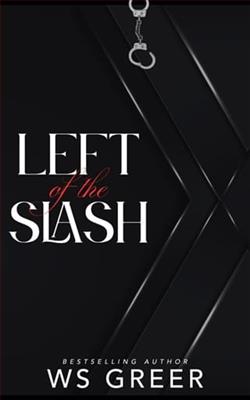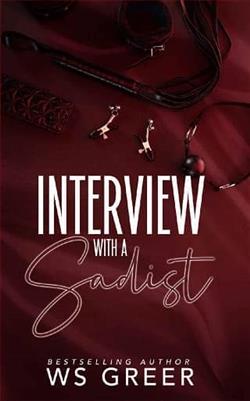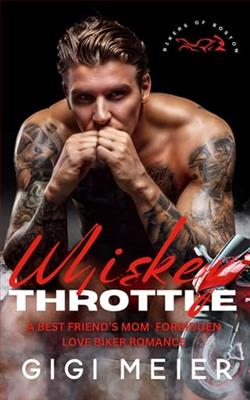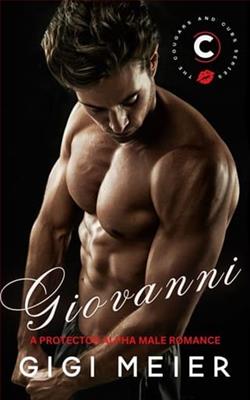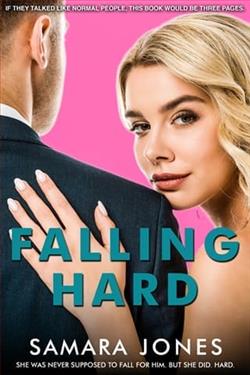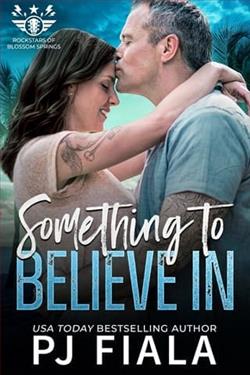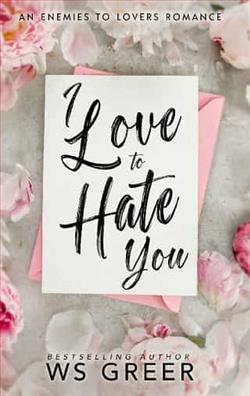Page 38 of Protected By the Grumpy Single Dad
“Look at you.” I lower the shirt carefully. “You don’t deal with this; you could be leaving Brick for good.”
“I’ll go tomorrow.” He swallows. “Not tonight.”
“Asher—”
“Please, Jasmine.” He lifts a hand in my direction like a stop sign. The simple motion flares pain through him again. He rides it out. “I’m not leaving the house tonight. That’s that.”
Two truths collide in my chest: I want to throttle him, and I can’t walk away.
“Fine.” The word tastes like a compromise I’ll regret, but a better idea is already forming. “Then give me twenty minutes. I’m grabbing supplies.”
“What are you—”
“If you won’t leave the house, you’re at least getting basic first aid,” I snap. “Sit. Don’t move. Breathe shallow. Try not to be a hero about it.”
“Do you ever do as you’re told?” he mutters as I step backward onto the porch.
I pause under the light and arch a brow. “If you have to ask that by now, Sheriff Vaughn…”
He exhales—half annoyed, half relieved—and I pretend I don’t care which half wins.
I drive home like a courier on a timer, grab my emergency kit, a roll of cohesive bandage, gauze pads, antiseptic wipes, a couple of instant ice packs, and a bag of pharmacy extras for good measure. Back at his place, he’s on the couch, trying to look composed and only succeeding at “man heroically loses that battle.”
“You didn’t have to—”
“Raise your shirt.”
“Jasmine, I’m seri—”
“Raise. Your. Shirt. Good gravy, man, do you ever listen?”
He sighs like I’m tossing him into a volcano and lifts the fabric.
Up close it’s worse. The bruising is deep and blotchy, a few areas more tender to the touch. The cuts are superficial but messy. His face has one split spot that will probably flower by morning.
“You’d still rather not go to the ER?” I ask as I tear open antiseptic wipes.
“I’d still rather not leave Brick.”
I shrug because arguing in circles wastes time I need for triage. “We’re doing this my way, then. I’m cleaning these, pressing the swelling down, and binding the ribs so you can breathe without stabbing yourself from the inside.”
He gives a grunt that might be permission. I start with the cuts—quick, clean passes, gauze pressure until the oozing chills out. He flinches once and clamps his jaw.
“Why?” he asks as I work, voice quieter than the room.
“Why what?”
“Why are you doing this?” He looks at me full on. The porch light from the window throws little gold flecks into his eyes. Stupid eyes.
“Because being a decent human is free?” I unwrap a bandage and measure by feel, keeping my hands gentle on the worst ofthe bruising. “And because I don’t want you dying on my watch. Is that surprising?”
“You tell me.”
“Just shut up and let me do this, Officer Vaughn.”
I glance up. He’s watching me, every hard edge ground down by pain and something that looks a lot like apology. I look away fast and tighten the first wrap. He hisses between teeth.
“Who did this?” I ask, more clinical than curious. If I sound clinical, I’m safer.








